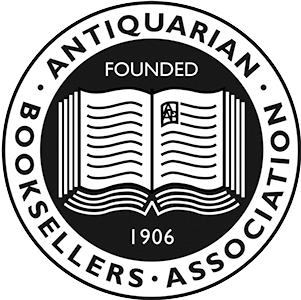[No stated place or publisher:] , 1789. Secularization and socialism during the French Revolution First edition of this proposal for secular public education, a biting critique of the institutions and morals of the ancien régime, published at the beginning of the French Revolution. Francois Boissel (1728-1807) is regarded as one of the foremost exponents of socialism in pre-Revolutionary France, and a key precursor of 19th-century communism. The French revolutionaries, recognizing that their anticlerical stance would require a new, secular approach to public education, proposed a series of civic catechisms. Boissel (1728-1807), an active member of the Jacobin club, published this Catéchisme in April 1789, shortly before the final convening of the Estates-General in May. In August, he submitted it to the National Assembly. Building on the work of Helvétius's De l'Homme (1774), he outlines a vitriolic attack on religion, characterizing the French Catholic Church as a "mercenary, homicidal, and antisocial establishment". Equally, Boissel targets private property and marriage, arguing that each was intended to subjugate the working masses - both male and female. The Catéchisme is bound fourth in this volume, along with four early works on the Revolution: a) LAUNAY, Emmanuel Louis Henri Alexandre de, Comte d'Antraigues. Memoire sur les Etats-Generaux; leurs droits, et la maniere de les convoquer. [No place or publisher stated,] 1788. Pp. 279, [1]. Early edition, small wormhole to inner margin of leaves M7-S4. In the Memoire, Launay (1753-1812), a friend of Rousseau, is among the first to identify the third estate with the nation itself. b) AGIER, Pierre-Jean. Le Jurisconsulte National, ou Principes sur la nécessité du consentement de la Nation pour établir & proroger les Impôts [drophead title]. [No place or publisher stated,] 1787. Pp. 84. First edition. Agier (1748-1823), a jurist, pushes here for the Estates General to reclaim their sovereign legislative power from the King. Calonne judged this tract among the most seditious printed during this period. The tract was published in three parts: this volume contains the first part only. c) ROUGANE, Claude Constant. Le decret du 13 Avril mal justifié, par M. L'Évèque d'Autun, Dans sa Réponse à son Chapitre; la France sans religion et sans Dieu, Même depuis 1787 [drophead title]. [No place or publisher stated, c.1790]. Pp. 84. First edition. Claude Constant Rougane, a curé and controversialist from the Auverge, engages with Talleyrand, who served as Bishop of Autun from 1788 to 1791. d) Extrait des minutes secretes du Vatican, Intitulé l'Apothéose des Maniaques, ou l'Univers mistifié, apologue, dénoncé aux Etats-Généraux de France, & à toute l'Europe [drophead title]. [No place or publisher stated, c.1789]. Pp. 8. First edition. Bound fourth in a pamphlet volume, octavo (200 x 120 mm), pp. 206. Contemporary mottled calf, flat spine panelled and decorated in gilt, red morocco label lettered in gilt, covers with double-rule panel in blind, marbled endpapers and edges, blue silk bookmarker, bookseller's ticket of Azevedo & Burnay, Lisbon, to front pastedown. Contemporary attribution in ink to title. Spine ends and extremities worn, short crack to head of joints but holding firm, some surface worming, scoring and wear to boards, still very sound, minor browning and foxing to a few pages, some leaves with lower margin untrimmed; a very good copy. INED 578. Not in Goldsmiths' or Kress.

















